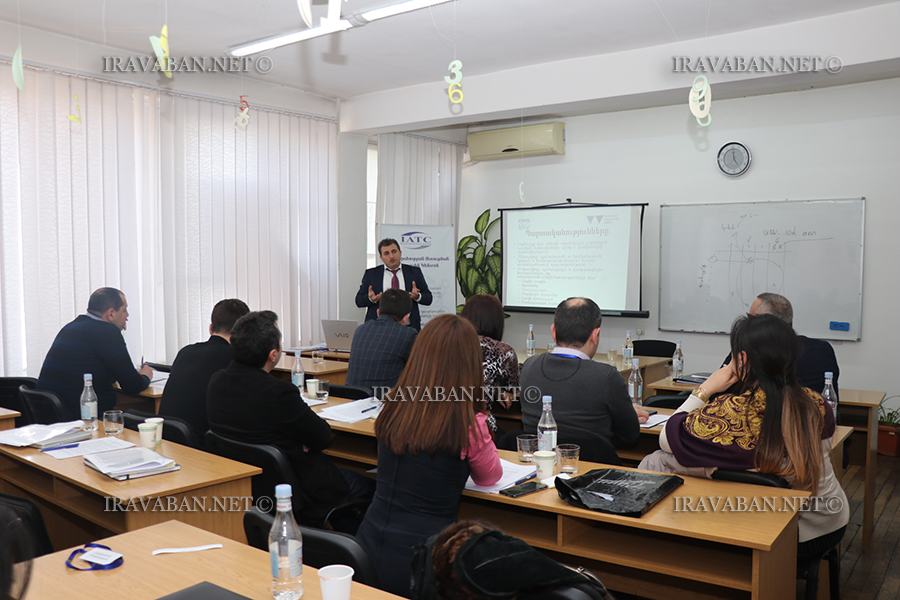On 22 February, the “Corporate Governance Center” NGO launched the training on “Anti-Corruption Compliance in Business” for the representatives of Business Companies in the scope of the “Armenia: Promoting Anti-Corruption Conduct and Reforms” Project implemented by the “Center for International Private Enterprise”, the “Armenian Lawyers’ Association” NGO, the “Corporate Governance Center” NGO and the “Yerevan Chamber of Commerce and Industry” with financial support of the National Endowment for Democracy.
The objective of this project is to improve the perception of compliance issue by the Armenian business sector and its practical application, as well as the promotion of public-private partnerships to support anti-corruption reforms.
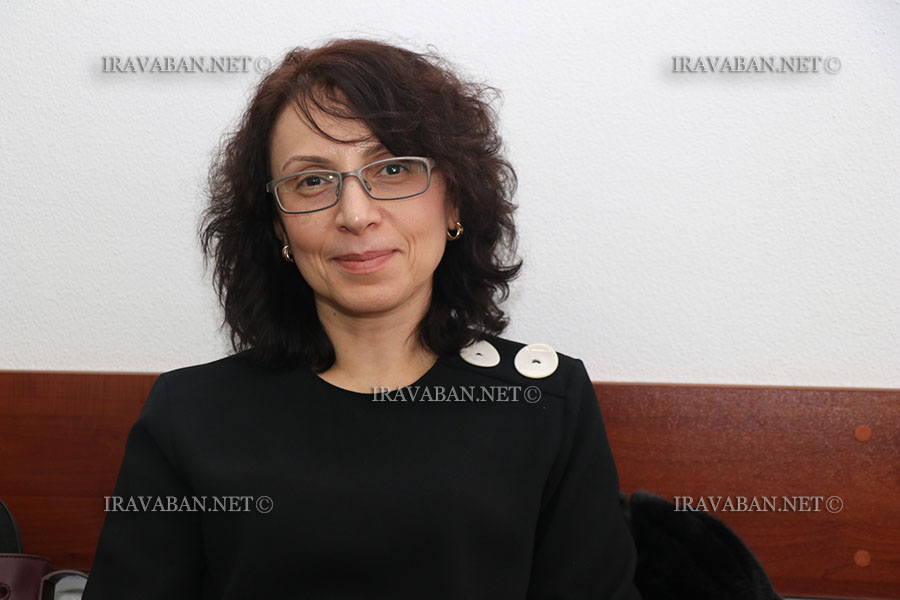 Ms Narine Melikyan, President of Corporate Governance Center noted that their organisation would organise 5 trainings in Yerevan and two marzes of the RA. Representatives of 15 organisations took part in the first training in Yerevan. At the end of the course the participants will receive certificates. According to Narine Melikyan, not all participants were aware of the topic.
Ms Narine Melikyan, President of Corporate Governance Center noted that their organisation would organise 5 trainings in Yerevan and two marzes of the RA. Representatives of 15 organisations took part in the first training in Yerevan. At the end of the course the participants will receive certificates. According to Narine Melikyan, not all participants were aware of the topic.
“Only one out of 15 participants in the course is fully informed. If we consider this at a 10-point system, the participants are generally informed about 3-4 units,” she said.
Narine Melikyan also noted that good results would be recorded in case if more than half of the participants of each group would continue to cooperate and implement compliance programs in the organisations.
“It is possible to introduce some parts of the program in the organisation, for example, such as improving codes of conduct, organising training, and so on. The top management of the organisation will need time to understand this themselves in order to introduce the compliance program. Participants this course should present and explain the essence of the program to them. We shall provide providing free services till October 1 in the scope of the “Armenia: Promoting Anti-Corruption Conduct and Reforms” Project,” Narine Melikyan said.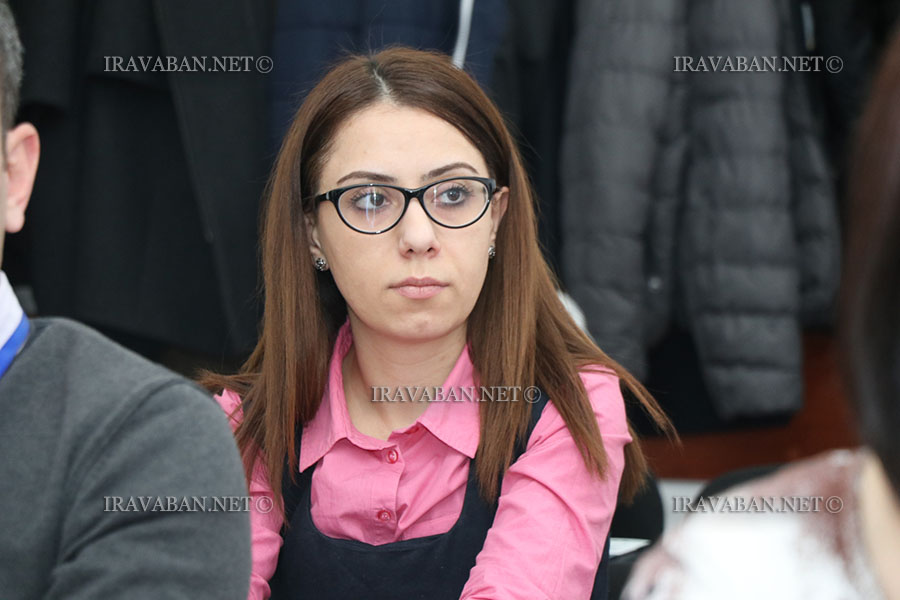
Ms Katerina Altunyan, a lecturer at the Public Administration Department at Yerevan State University, has been interested in the training as she is conducting the course on public-private partnerships, and the materials presented in the scope of the course also provide clarification for the practicle issues which they face.
“The principles of corporate governance and the introduction of international experience are very important in terms of overcoming corruption. This will also change the overall atmosphere and will allow for development not only for large, but also for small medium-sized businesses which really are backward in Armenia,” Katerina Altunyan says.
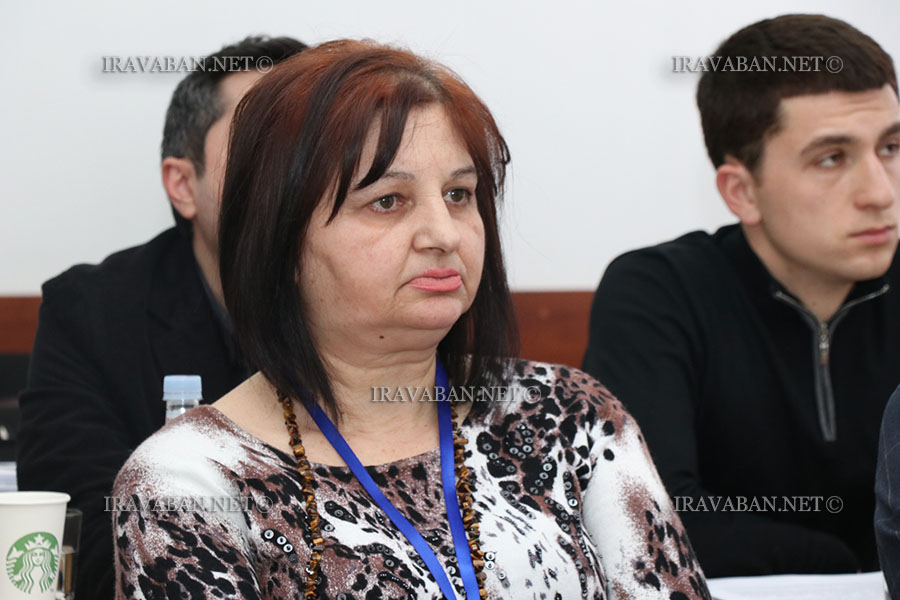 “If our country has adopted an anti-corruption policy, then we should all support on our part as much as possible. Even if there was no revolution, we could see that it was almost impossible to survive in such corrupt environment,” Ms Haykuhi Rubinyan, Head of the Human Resources Management Department of “ArmProject” Open Joint Stock Company said.
“If our country has adopted an anti-corruption policy, then we should all support on our part as much as possible. Even if there was no revolution, we could see that it was almost impossible to survive in such corrupt environment,” Ms Haykuhi Rubinyan, Head of the Human Resources Management Department of “ArmProject” Open Joint Stock Company said.
According to her, there are about 135 employees in the company and they are planning to introduce an anti-corruption compliance program in the company, and some trainings may also be organised for the employees. “I have not seen corruption risks yet in our company, but unfortunately, corruption is not just a bribe giving and taking. For example, several organisations would come to agreement on participation in purchase tenders and I see problems related with the external links for fair competition. We need to be educated and ready in this regard and support this project as much as possible,” Haykuhi Rubinyan said.
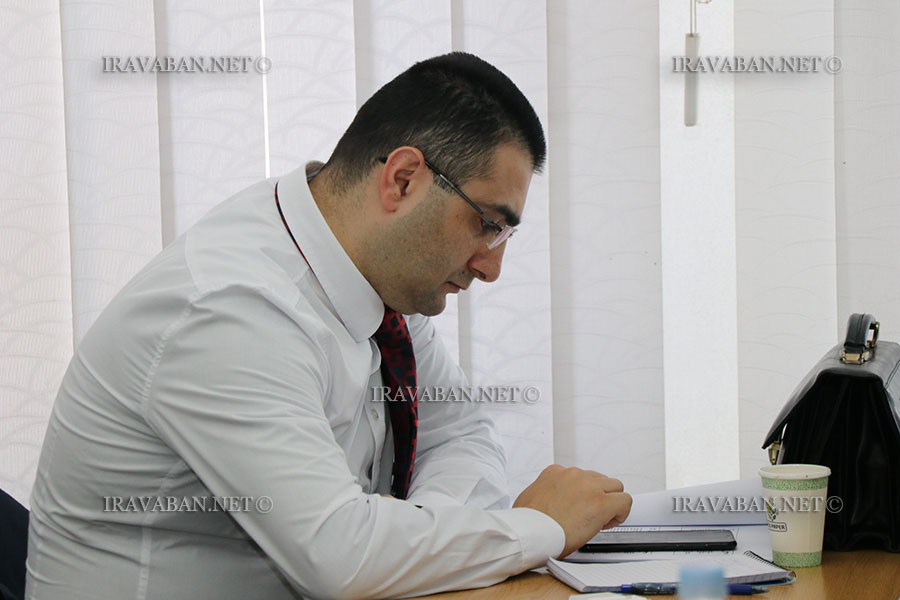 Mr. Mihran Galstyan, Head of the Legal Department of “ArmSwissBank” Closed Joint-Stock Company, said that the implementation of the program cannot create legal barriers for organisations as they are eligible to make changes to their statutes. He also noted that such programs could contribute to the fight against corruption, but the leaders of the organisation should be willing to follow the program blindly. “Why blindly? Because this is a process that when you choose the principles of fighting, you must follow and implement them, otherwise its analysis can lead to other deviations,” he said.
Mr. Mihran Galstyan, Head of the Legal Department of “ArmSwissBank” Closed Joint-Stock Company, said that the implementation of the program cannot create legal barriers for organisations as they are eligible to make changes to their statutes. He also noted that such programs could contribute to the fight against corruption, but the leaders of the organisation should be willing to follow the program blindly. “Why blindly? Because this is a process that when you choose the principles of fighting, you must follow and implement them, otherwise its analysis can lead to other deviations,” he said.
Additionally, issues such as types of corruption, their impact on business, the essence of anti-corruption compliance program, international experience, its advantages and main benefits, key components and a number of other issues have been presented and discussed in the scope of the course.
This material has been prepared in the scope of the “Armenia: Promoting Anti-Corruption Conduct and Reforms” Project implemented by the “Center for International Private Enterprise”, the “Armenian Lawyers’ Association” NGO, the “Corporate Governance Center” NGO and the “Yerevan Chamber of Commerce and Industry” with financial support of the National Endowment for Democracy. The project is implemented as a co-financing to the “Commitment to Constructive Dialogue” action implemented with the financial support of the European Union by a Consortium comprising the “Armenian Lawyers’ Association” NGO, the “Armenian Center for Democratic Education-CIVITAS” NGO, the “International Center for Human Development” NGO, the “SME Cooperation Association” NGO, the Union of Communities of Armenia, as well as “Agora Central Europe” NGO (Czech Republic). The contents of this material are the sole responsibility of the “Armenian Lawyers’ Association” NGO and can in no way be taken to reflect the views of the National Endowment for Democracy and the European Union.
Alisa Chilingaryan

